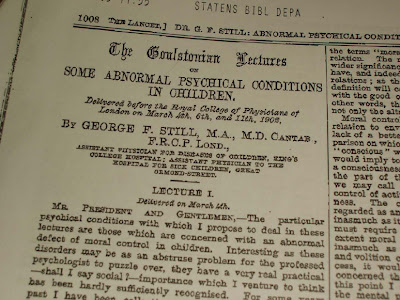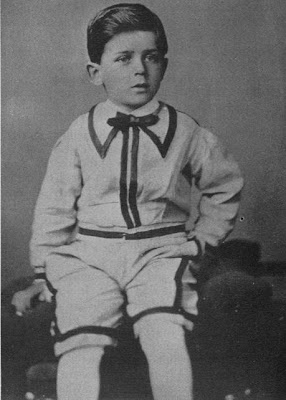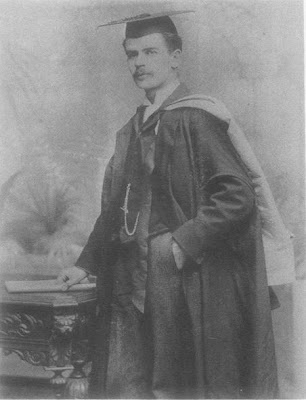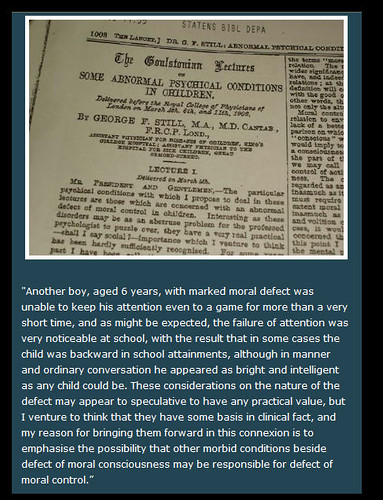 Sir George Frederick Still (1868-1941) The father of British pediatrics.
Sir George Frederick Still (1868-1941) The father of British pediatrics.
England’s first professor in child medicine presented on 4th, 6th and 11th March 1902 a series of three lectures to the Royal College of Physicians in London, under the name “Goulstonian lectures” on ‘some abnormal psychical conditions in children’, which were published later the same year in the Lancet. He described 43 children who had serious problems with sustained attention and self-regulation, who were often aggressive, defiant, resistant to discipline, excessively emotional or passionate, who showed little inhibitory volition, had serious problems with sustained attention and could not learn from the consequences of their actions; though their intellect was normal.
He wrote “I would point out that a notable feature in many of these cases of moral defect without general impairment of intellect is a quite abnormal incapacity for sustained attention.
He concluded:“there is a defect of moral consciousness which cannot be accounted for by any fault of environment” When Still was talking about Moral Control, he was referring to it as William James had did before him, but to Still, the moral control of behavior meant “the control of action in conformity with the idea of the good of all”

”Another boy, aged 6 years, with marked moral defect was unable to keep his attention even to a game for more than a very short time, and as might be expected, the failure of attention was very noticeable at school, with the result that in some cases the child was backward in school attainments, although in manner and ordinary conversation he appeared as bright and intelligent as any child could be. These considerations on the nature of the defect may appear to speculative to have any practical value, but I venture to think that they have some basis in clinical fact, and my reason for bringing them forward in this connexion is to emphasise the possibility that other morbid conditions beside defect of moral consciousness may be responsible for defect of moral control.”

George Still certainly did not use the current terminology for this disorder, but many historians of ADHD have inferred that the children he described in his series of three published lectures to the Royal College of Physicians would likely have qualified for the current disorder of ADHD combined type, among other disorders.

George Still as child
The History of British Pediatrics.
George F Still
References:
Alexander Crichton : An inquiry into the nature and origin of mental derangement : comprehending a concise system of the physiology and pathology of the human mind and a history of the passions and their e?ects. 1798.
Some abnormal psychical conditions in children: the Goulstonian lectures”. The Lancet’, 1902;1:1008-1012
Russell A. Barkley: The Relevance of the Still Lectures to Attention Deficit Hyperactivity Disorder A Commentary. 2006; 10; 137 J Atten Disord.
George F. Still Some Abnormal Psychical Conditions in Children: Excerpts From Three Lectures 2006; 10; 126 J Atten Disord.
Palmer, E. D., and Finger, S. 2001. An early description of ADHD(Inattention Subtype): Dr. Alexander Crichton and the ”MentalRestlessness” (1798). Child Psychology and Psychiatry Reviews, 6, 66-73.
Many Thanks to:
Dr. Russell Barkley for material and kind advice.
Stanley Finger at Washington university in St Louis.
Links to Part 1 in the history of ADHD: Alexander Crichton
Links to part 2 in the history of ADHD Sir George Frederick Still

Swedish
ADHD historia Del 1 Alexander Crichton
ADHD historia Del 2 Alexander Crichton
ADHD historia Del 3 Sir George Frederick Still
ADHD historia Del 4 Charles Bradley 1937 – Benzedrine
Copyright by the author, all rights reserved.







